Plants
-
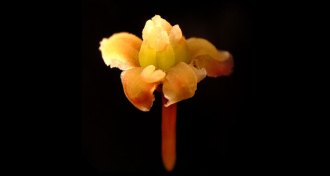 Plants
PlantsLone survivor of ancient flowers is gluttonous gene consumer
The rare Amborella shrub has engulfed whole genomes from other species.
By Susan Milius -
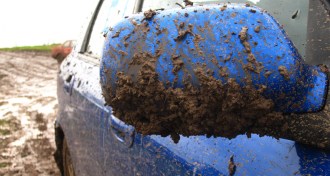 Plants
PlantsHow weeds hitchhike across the country
A drive down a muddy lane can be fun, but it can also pick up the seeds of weeds or invasive species and transport them far away.
-
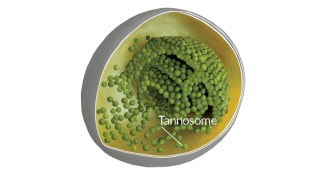 Plants
PlantsTannosome
A newly discovered structure where mouth-puckering compounds called tannins form inside plant cells.
By Susan Milius -
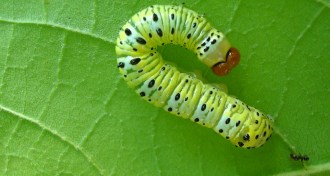 Plants
PlantsIn dry times, these trees invest in ants
The insects provide adequate defense by ganging up on leaf-eating caterpillars and biting their undersides until the herbivores fall off the tree.
-
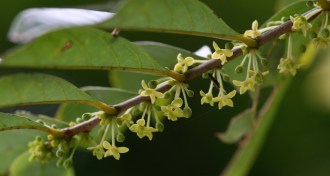 Plants
PlantsSingle-sex flowers release his, hers fragrances
Growing on the same tree, male blooms smell different from female blooms in certain tropical plant species.
By Susan Milius -
 Earth
EarthTrees mark the spot of buried gold
Tiny bits of the precious metal in eucalyptus leaves indicate treasure lurks belowground.
By Beth Mole -
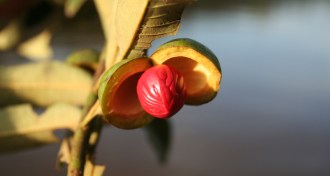 Plants
PlantsJust a few tree species dominate Amazon forest
The Amazonian rainforest, known to be one of the most species-rich areas on the planet, is actually dominated by a only few tree species.
By Science News -
 Plants
PlantsTiny fossils set record for oldest flowerlike pollen
Oldest flowerlike pollen might have come from an ancient relative of today’s flowering plants.
By Susan Milius -
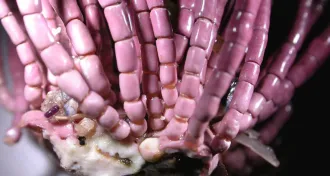 Plants
PlantsHard-shelled seaweed survives by its loose knees
Stringy joints between calcified algae’s segments don’t break easily under repeated stresses.
By Susan Milius -
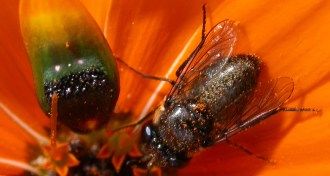 Plants
PlantsDastardly daisies
This flower isn’t just any old sex cheat. It can be sexually deceptive three ways and in 3-D.
By Susan Milius -
 Life
LifeGenes in wheat relatives help stave off stem rust
Wild and obscure species provide resistance to deadly fungus.
-
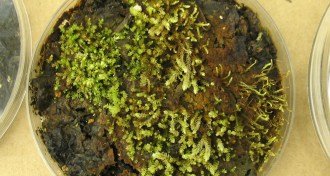 Plants
PlantsMosses frozen in time come back to life
Buried under a glacier for hundreds of years, plants regrow in the lab.
By Erin Wayman